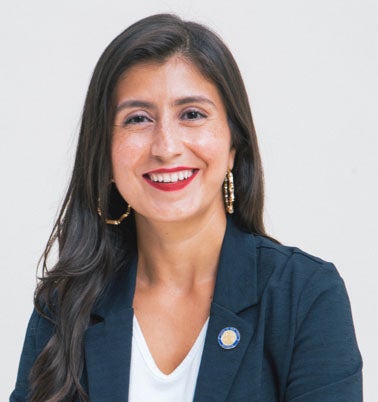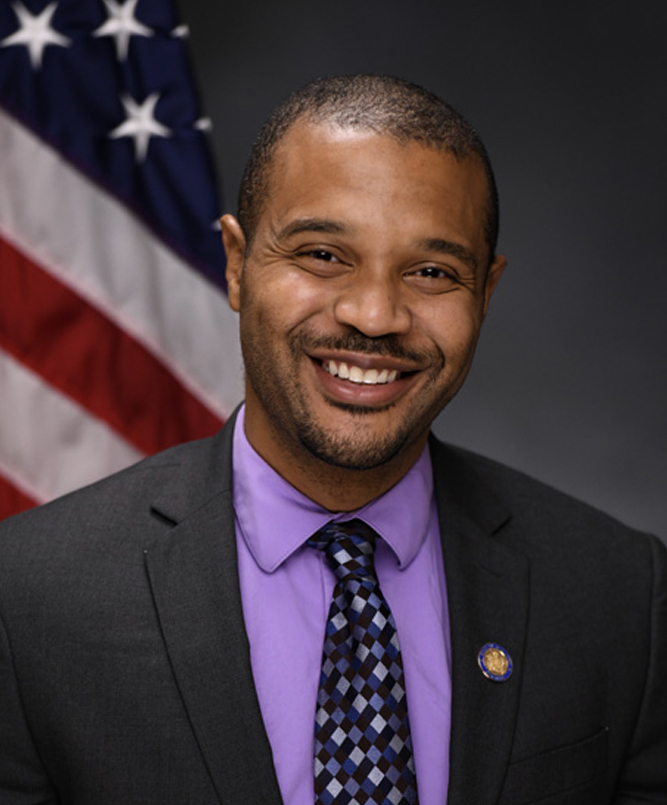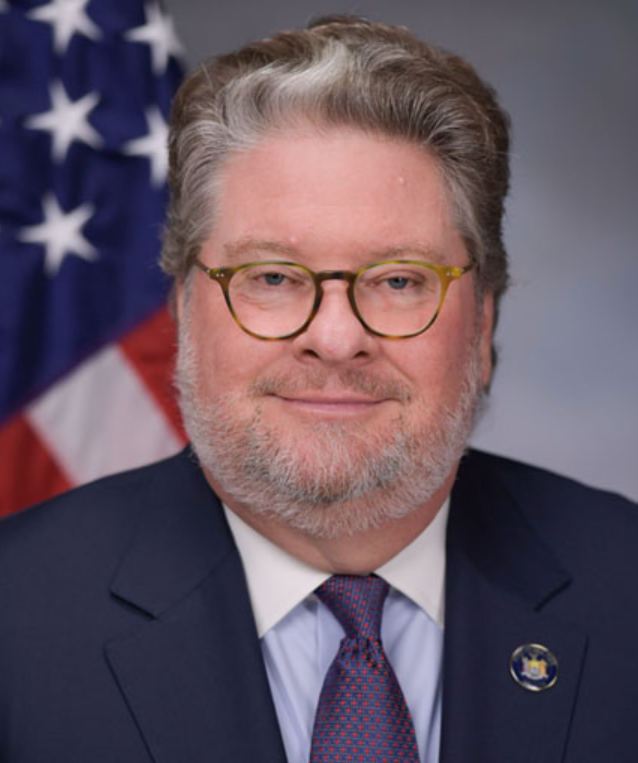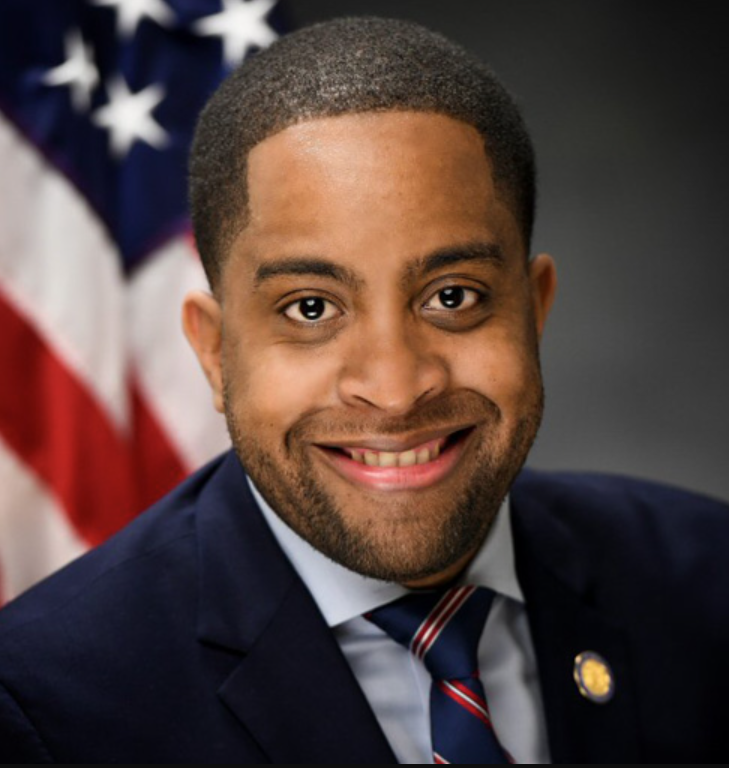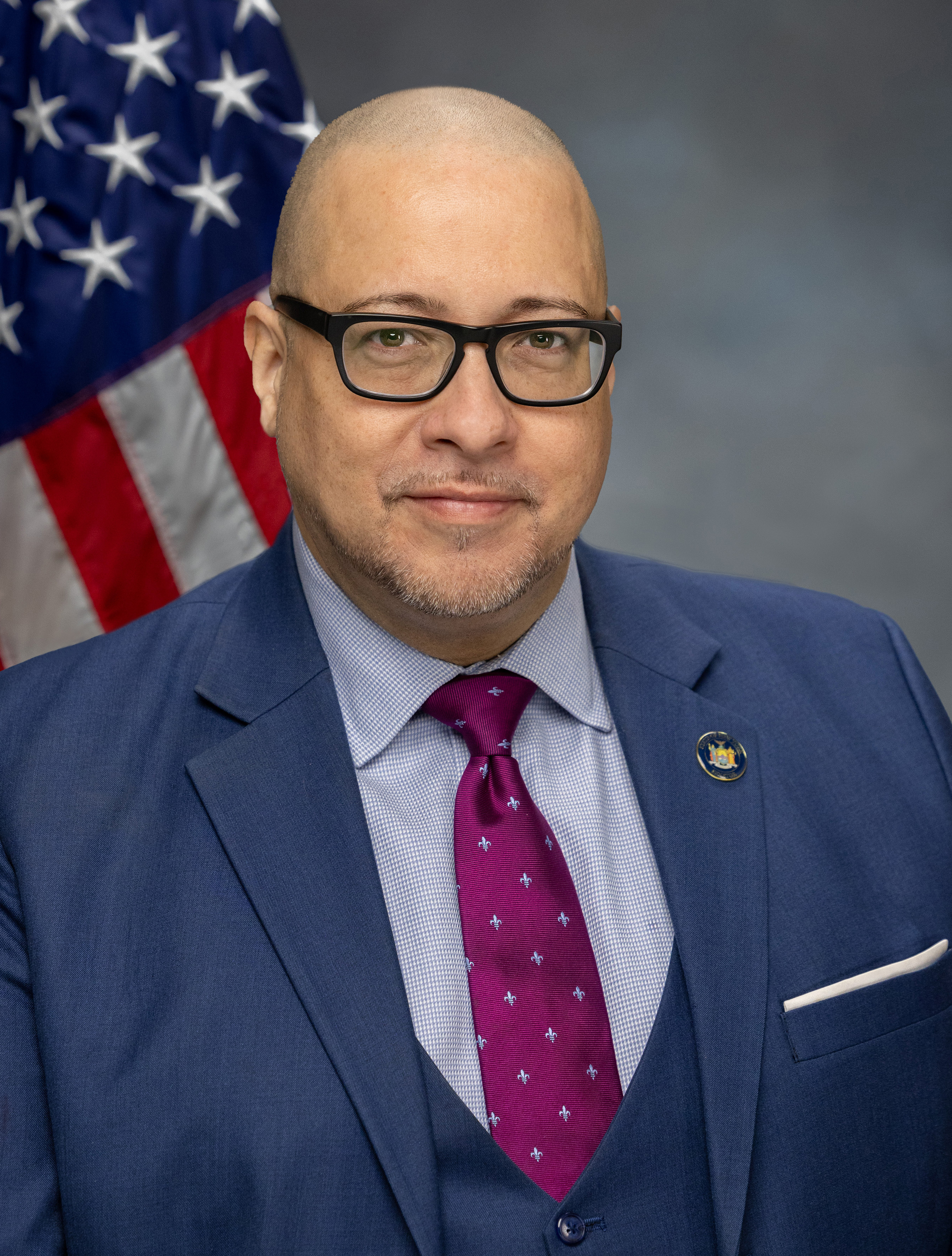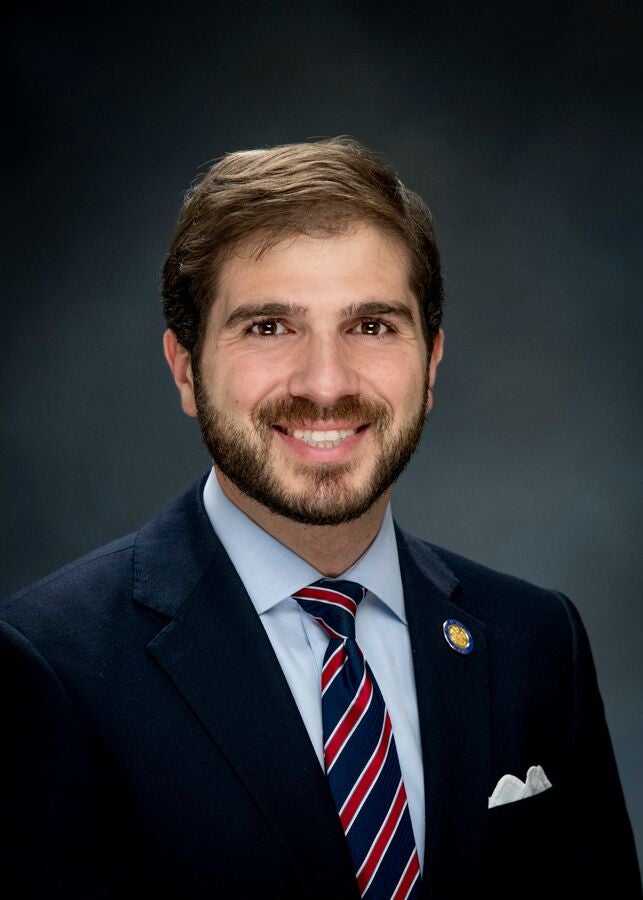S. 2881--B 2
law, identity theft in the first degree as defined in section 190.80 of
the penal law, or any other specified offense as defined in subdivision
five of section 410.91 of this chapter, provided, however, a defendant
is not an "eligible defendant" if he or she:], MISDEMEANOR COMPLAINT OR
FELONY COMPLAINT WITH ANY OFFENSE AND HAS A FUNCTIONAL IMPAIRMENT.
§ 3. The opening paragraph of subdivision 1 of section 216.00 of the
criminal procedure law, as amended by section 2 of chapter 435 of the
laws of 2021, is amended to read as follows:
"Eligible defendant" means any person who stands charged in an indict-
ment [or a], superior court information [with a class B, C, D or E felo-
ny offense defined in article two hundred twenty or two hundred twenty-
two of the penal law, an offense defined in sections 105.10 and 105.13
of the penal law provided that the underlying crime for the conspiracy
charge is a class B, C, D or E felony offense defined in article two
hundred twenty or two hundred twenty-two of the penal law, auto strip-
ping in the second degree as defined in section 165.10 of the penal law,
auto stripping in the first degree as defined in section 165.11 of the
penal law, identity theft in the second degree as defined in section
190.79 of the penal law, identity theft in the first degree as defined
in section 190.80 of the penal law, or any other specified offense as
defined in subdivision five of section 410.91 of this chapter, provided,
however, a defendant is not an "eligible defendant" if he or she:],
MISDEMEANOR COMPLAINT OR FELONY COMPLAINT WITH ANY OFFENSE AND HAS A
FUNCTIONAL IMPAIRMENT.
§ 4. Paragraphs (a) and (b) and the closing paragraph of subdivision 1
of section 216.00 of the criminal procedure law are REPEALED.
§ 5. Subdivision 2 of section 216.00 of the criminal procedure law, as
amended by chapter 435 of the laws of 2021, is amended and three new
subdivisions 3, 5 and 6 are added to read as follows:
2. ["Alcohol and substance use evaluation"] "PARTICIPANT" MEANS AN
ELIGIBLE DEFENDANT WHO HAS BEEN ADMITTED INTO THE TREATMENT COURT.
3. "FUNCTIONAL IMPAIRMENT" MEANS A CONDITION THAT IMPAIRS THE ELIGIBLE
DEFENDANT'S FUNCTIONING. A FUNCTIONAL IMPAIRMENT MAY INCLUDE, BUT IS NOT
LIMITED TO, SUBSTANCE ABUSE OR ALCOHOL DEPENDENCE, MENTAL ILLNESS,
DEVELOPMENTAL DISABILITY, INTELLECTUAL DISABILITY, TRAUMATIC BRAIN INJU-
RY OR OTHER NEUROLOGICAL DISEASE, PERSONALITY DISORDER, COGNITIVE
DYSFUNCTION, DEMENTIA, EMOTIONAL DISTURBANCE OR ANY OTHER DISABILITY.
THE COURT SHALL DEFER TO LICENSED HEALTH CARE PROFESSIONALS AND THE
BROADER MEDICAL COMMUNITY CONSENSUS IN DETERMINING WHETHER A PERSON IS
DISABLED OR FUNCTIONALLY IMPAIRED. A PERSON MAY HAVE MORE THAN ONE FUNC-
TIONAL IMPAIRMENT.
4. "CLINICAL EVALUATION" means a written assessment and report by a
[court-approved entity or] licensed [health care professional experi-
enced in the treatment of alcohol and substance use disorder, or] CLINI-
CIAN QUALIFIED TO IDENTIFY FUNCTIONAL IMPAIRMENTS AS DEFINED IN SUBDI-
VISION THREE OF THIS SECTION OR AN EVALUATION CONDUCTED by an addiction
and substance [abuse] USE DISORDER counselor credentialed by the office
of addiction services and supports pursuant to section 19.07 of the
mental hygiene law, which shall include:
(a) an evaluation as to whether the defendant CURRENTLY has [a history
of alcohol or substance use disorder] ONE OR MORE FUNCTIONAL IMPAIRMENTS
THAT MAY INCLUDE BUT NOT BE LIMITED TO A MENTAL DISORDER, as [such terms
are] defined in the MOST RECENT EDITION OF THE diagnostic and statis-
tical manual of mental disorders, [fifth edition, and a co-occurring
mental disorder or mental illness and the relationship between such use
and mental disorder or mental illness,] if any;
S. 2881--B 3
(b) a recommendation as to whether the defendant's [alcohol or
substance use] FUNCTIONAL IMPAIRMENTS, if any, could be effectively
addressed by judicial diversion in accordance with this article;
(c) a recommendation as to the treatment modality, level of care and
length of any proposed treatment to effectively address the defendant's
[alcohol or substance use and any co-occurring mental disorder or
illness] FUNCTIONAL IMPAIRMENTS IN ACCORDANCE WITH FEDERAL LAW REQUIRING
THE MOST INTEGRATED SETTING APPROPRIATE TO THE NEEDS OF INDIVIDUALS WITH
DISABILITIES; and
(d) any other information, factor, circumstance, or recommendation
deemed relevant by the assessing entity or specifically requested by the
court.
5. "TREATMENT" MEANS ONE OR MORE EVIDENCE-BASED INTERVENTIONS INCLUD-
ING, BUT NOT LIMITED TO, COUNSELING, PSYCHOTHERAPY, PHARMACOTHERAPY,
PSYCHIATRIC MEDICATION, HEALTH PROMOTION, AND OVERDOSE PREVENTION EDUCA-
TION. FOR SUBSTANCE USE DISORDERS, TREATMENT INCLUDES ANY CLINICAL
SERVICE OR INTERVENTION THAT ASSISTS INDIVIDUALS TO ACHIEVE RECOVERY IN
THE FORM OF: (A) ABSTINENCE FROM ALL OR CERTAIN PSYCHOACTIVE SUBSTANCES;
(B) A CHANGE OR REDUCTION IN USE; OR (C) IMPROVED WELL-BEING, SOCIAL
STABILITY AND THE ALLEVIATION OF ASSOCIATED HARMS.
6. "TREATMENT PROVIDER" MEANS A PERSON OR ORGANIZATION QUALIFIED TO
PROVIDE INTERVENTIONS RESPONSIVE TO THE NEEDS IDENTIFIED BY THE PARTIC-
IPANT AND CLINICIAN DURING THE CLINICAL EVALUATION.
§ 6. Section 216.05 of the criminal procedure law, as amended by chap-
ter 435 of the laws of 2021, is amended to read as follows:
§ 216.05 Judicial diversion program; court procedures.
1. At any time after the LOCAL CRIMINAL COURT arraignment of an eligi-
ble defendant, but prior to the entry of a plea of guilty or the
commencement of trial, the court at the request of the eligible defend-
ant, [may] SHALL order [an alcohol and substance use] A CLINICAL evalu-
ation FOR ALL KNOWN FUNCTIONAL IMPAIRMENTS. SUCH EVALUATIONS SHALL TAKE
PLACE WITHOUT UNDUE DELAY.
(A) THE POSSIBILITY OF BEING EVALUATED SHALL NOT BE CONTINGENT ON A
WAIVER OF ANY OTHER SECTIONS OF THIS CHAPTER EXCEPT SUBDIVISION ONE OF
SECTION 30.30 OF THIS CHAPTER.
(B) An eligible defendant may decline to [participate in] UNDERGO such
an evaluation at any time.
(C) The defendant shall provide a written authorization, in compliance
with the requirements of any applicable state or federal laws, rules or
regulations authorizing disclosure of the results of the assessment to
the defendant's attorney, the prosecutor, the local probation depart-
ment, the court, authorized court personnel and other individuals speci-
fied in such authorization for the sole purpose of determining whether
the defendant should be offered judicial diversion for treatment for
[substance use, alcohol use and any co-occurring mental disorder or
mental illness] A FUNCTIONAL IMPAIRMENT.
(D) NO STATEMENT OR OTHER DISCLOSURE, WRITTEN OR OTHERWISE, MADE BY A
DEFENDANT TO A PROFESSIONAL COMPLETING THE CLINICAL EVALUATION MAY BE
USED BY THE PROSECUTION TO PROVE ANY CRIME OR OFFENSE ALLEGED IN THE
PENDING CASE. ALL SUCH STATEMENTS SHALL BE USED ONLY FOR THE PURPOSES OF
MAKING RECOMMENDATIONS AS DEFINED IN SUBDIVISION TWO OF THIS SECTION AND
SHALL OTHERWISE REMAIN CONFIDENTIAL.
2. Upon receipt of the completed [alcohol and substance use] CLINICAL
evaluation report, the court shall provide a copy of the report to the
eligible defendant and the [prosecutor] DEFENDANT'S COUNSEL.
S. 2881--B 4
3. (a) Upon [receipt] REVIEW of the evaluation report [either party]
THE DEFENDANT may request a hearing on the issue of whether the [eligi-
ble] defendant IS AN ELIGIBLE DEFENDANT AND should be offered [alcohol
or substance use] treatment pursuant to this article. AT THE TIME THAT
THE DEFENDANT REQUESTS A HEARING, THE DEFENDANT SHALL TURN OVER A
COMPLETE COPY OF THE EVALUATION REPORT TO THE PROSECUTOR AND THE COURT.
At such a proceeding, which shall be held as soon as practicable so as
to facilitate early intervention in the event that the [defendant]
PARTICIPANT is found to need [alcohol or substance use] treatment, the
court may consider oral and written arguments, [may] take testimony from
witnesses offered by either party, and [may] consider any relevant
evidence [including, but not limited to, evidence that:
(i) the defendant had within the preceding ten years (excluding any
time during which the offender was incarcerated for any reason between
the time of the acts that led to the youthful offender adjudication and
the time of commission of the present offense) been adjudicated a youth-
ful offender for: (A) a violent felony offense as defined in section
70.02 of the penal law; or (B) any offense for which a merit time allow-
ance is not available pursuant to subparagraph (ii) of paragraph (d) of
subdivision one of section eight hundred three of the correction law;
and
(ii) in the case of a felony offense defined in subdivision five of
section 410.91 of this chapter, or section 165.10, 165.11, 190.79 or
190.80 of the penal law, any statement of or submitted by the victim, as
defined in paragraph (a) of subdivision two of section 380.50 of this
chapter] EXCEPT SEALED CASES DEFINED IN SECTION 160.50 OF THIS CHAPTER.
(b) Upon completion of such a proceeding, the court shall consider and
make findings of fact with respect to whether:
(i) the defendant is an eligible defendant as defined in subdivision
one of section 216.00 of this article;
(ii) [the defendant has a history of alcohol or substance use;
(iii) such alcohol or substance use] THE DEFENDANT'S FUNCTIONAL
IMPAIRMENT is LIKELY a contributing factor to [the defendant's criminal
behavior] THEIR CURRENT OR FUTURE INVOLVEMENT IN THE CRIMINAL LEGAL
SYSTEM;
[(iv)] (III) the defendant's participation in judicial diversion could
effectively address such [use] FUNCTIONAL IMPAIRMENT; and
[(v) institutional confinement of the defendant is or may not be
necessary for the protection of the public] (IV) THE DEFENDANT'S ACCESS
TO TREATMENT THROUGH THIS ARTICLE WOULD BENEFIT THE PUBLIC AND THE
DEFENDANT.
(C) WHERE THERE HAS BEEN A FINDING IN THE CLINICAL EVALUATION THAT THE
DEFENDANT HAS A MENTAL DISORDER, AS DEFINED IN THE MOST RECENT EDITION
OF THE DIAGNOSTIC AND STATISTICAL MANUAL OF MENTAL DISORDERS, OR A CLIN-
ICAL DIAGNOSIS OF ANOTHER SERIOUS FUNCTIONAL IMPAIRMENT THERE SHALL BE A
PRESUMPTION THAT THE DEFENDANT IS AN ELIGIBLE DEFENDANT.
4. (A) When an authorized court determines, pursuant to paragraph (b)
of subdivision three of this section, that an eligible defendant should
be offered [alcohol or substance use] treatment, or when the parties and
the court agree to [an eligible defendant's participation in alcohol or
substance use] treatment, an eligible defendant [may] SHALL be allowed
to participate in the judicial diversion program offered by this arti-
cle. [Prior to the court's issuing an order granting judicial diver-
sion, the eligible defendant shall be required to enter a plea of guilty
to the charge or charges; provided, however, that no such guilty plea
shall be required when:
S. 2881--B 5
(a) the people and the court consent to the entry of such an order
without a plea of guilty; or
(b) based on a finding of exceptional circumstances, the court deter-
mines that a plea of guilty shall not be required. For purposes of this
subdivision, exceptional circumstances exist when, regardless of the
ultimate disposition of the case, the entry of a plea of guilty is like-
ly to result in severe collateral consequences.]
(B) ELIGIBLE DEFENDANTS SHALL NOT BE REQUIRED TO SUBMIT A PLEA OF
GUILTY TO PARTICIPATE IN JUDICIAL DIVERSION.
(C) PRIOR PARTICIPATION IN TREATMENT OR COURT-MANDATED TREATMENT SHALL
NOT PRECLUDE FUTURE TREATMENT PARTICIPATION.
(D) ELIGIBLE DEFENDANTS SHALL NOT BE PRECLUDED FROM DIVERSION BECAUSE
OF A LACK OF RESOURCES IN THE COMMUNITY.
(E) AN ELIGIBLE DEFENDANT SHALL NOT BE PRECLUDED FROM DIVERSION
BECAUSE OF THEIR GENDER IDENTITY.
(F) THERE SHALL BE A PRESUMPTION THAT PARTICIPANTS SHALL BE AFFORDED
THE OPPORTUNITY TO REMAIN AT LIBERTY WHILE AWAITING CLINICAL EVALUATION
OR TREATMENT PLACEMENT.
5. The [defendant] PARTICIPANT shall agree on the record or in writing
to abide by the [release] JUDICIAL DIVERSION PROGRAM conditions set by
the court, which[,] shall include[:] participation in a specified period
of [alcohol or substance use] treatment at a specified program or
programs [identified by the court, which may include periods of detoxi-
fication,]. IN SETTING THE PROGRAM CONDITIONS, THE COURT SHALL CONSIDER
THE PARTICIPANT'S ASSESSMENT AND TREATMENT PLAN, AS AGREED UPON BY THE
PARTICIPANT AND TREATMENT PROVIDER, IN ADDITION TO THE CLINICAL EVALU-
ATION. THE COURT SHALL NOT CONSIDER THE NATURE OF A PARTICIPANT'S CHARG-
ES. JUDICIAL DIVERSION PROGRAM CONDITIONS MAY INCLUDE:
(A) LIMITED OR INTENSIVE OUTPATIENT TREATMENT IN WHICH THE PARTIC-
IPANT, REGARDLESS OF WHETHER THEY HAVE PERMANENT HOUSING OR NOT, MAY
RESIDE IN THE COMMUNITY;
(B) LIMITED PERIODS OF DETOXIFICATION OR INPATIENT REHABILITATION FOR
PARTICIPANTS WITH SUBSTANCE USE DISORDERS, EXCEPT THAT DETOXIFICATION
SHALL NOT BE USED AS A SANCTION AND DETOXIFICATION SHALL ONLY BE
REQUIRED AS PREPARATION FOR A TREATMENT ADMISSION OR MEDICATION
INDUCTION;
(C) residential [or outpatient] treatment[, or both]. IF ORDERING
RESIDENTIAL TREATMENT, PLACEMENT SHALL BE IN THE MOST INTEGRATED SETTING
APPROPRIATE FOR THE PARTICIPANT'S NEEDS TO AVOID DISCRIMINATION ON THE
BASIS OF DISABILITY, IN ACCORDANCE WITH FEDERAL LAW, as determined after
taking into account the views of the health care professional who
conducted the MENTAL HEALTH ASSESSMENT OR alcohol and substance use
evaluation and any health care professionals responsible for providing
such treatment or monitoring the defendant's progress in such treatment;
[and may include: (i)]
(D) periodic court appearances, which may [include periodic urinaly-
sis; (ii)] BE AN ELECTRONIC APPEARANCE PURSUANT TO SECTION 182.20 OF
THIS PART UPON CONSENT OF THE PARTICIPANT. THE COURT SHALL CONSIDER THE
PARTICIPANT'S SERVICE ENGAGEMENT AND TREATMENT NEEDS WHEN SCHEDULING
PERIODIC COURT APPEARANCES AND SHALL ATTEMPT TO MINIMIZE TREATMENT
DISRUPTION;
(E) PERIODIC DRUG SCREENING AS NEEDED, WHEN RECOMMENDED BY THE TREAT-
MENT PROVIDER AS PART OF A PARTICIPANT'S TREATMENT PLAN. DRUG SCREENING
METHODS SHALL ONLY INCLUDE ORAL SWABS, SWEAT PATCHES, OR NON-OBSERVED
URINALYSIS;
(F) OTHER TREATMENT AS RECOMMENDED BY THE TREATMENT PROVIDER; AND
S. 2881--B 6
(G) a requirement that the [defendant] PARTICIPANT refrain from engag-
ing in criminal behaviors[; (iii) if the defendant needs treatment for
opioid use, that he or she].
5-A. THE COURT SHALL NOT REQUIRE A PARTICIPANT TO CONSENT TO SHARE, OR
AUTHORIZE THE TREATMENT PROVIDER TO SHARE, PROTECTED HEALTH INFORMATION
IN ACCORDANCE WITH THE HEALTH INSURANCE PORTABILITY AND ACCOUNTABILITY
ACT PRIVACY RULE (45 CFR PARTS 160 AND 164), WITH THE COURT. EXCEPTIONS
INCLUDE:
(A) RECORD OF ATTENDANCE AND RELEVANT BARRIERS TO ATTENDANCE;
(B) TREATMENT PLAN AND ANY RECOMMENDED CHANGES TO THE PLAN DURING
PARTICIPATION IN JUDICIAL DIVERSION; AND
(C) DRUG TOXICOLOGY RESULTS, WHEN PART OF THE TREATMENT PLAN.
5-B. IF THE PARTICIPANT HAS A CONDITION REQUIRING PRESCRIPTION MEDICA-
TION, OR HAS ANOTHER CONDITION REQUIRING PRESCRIPTION MEDICATION, THEY
may participate in and receive medically prescribed drug treatments
under the care of a health care professional licensed or certified under
title eight of the education law, acting within his or her lawful scope
of practice[, provided that no].
(A) NO court shall require the use of any specified type or brand of
drug during the course of medically prescribed [drug] treatments.
(B) NO COURT SHALL PENALIZE OR SANCTION A PARTICIPANT FOR PERIODS OF
VOLUNTARY HOSPITALIZATION, RESPITE CARE, OR OTHER FORMS OF SUPPORTIVE
CARE.
5-C. TREATMENT PROVIDERS SHALL COLLABORATE WITH THE PARTICIPANT AND
CLINICAL COURT STAFF TO CREATE A DISCHARGE PLAN PRIOR TO COMPLETION OF
DIVERSION TO INCORPORATE PEER SUPPORT, HOUSING AND EMPLOYMENT SUPPORT,
AND HOW TO ACCESS OTHER COMMUNITY-BASED HEALTH SERVICES. IF A PARTIC-
IPANT FINISHES THEIR INPATIENT OR OUTPATIENT TREATMENT COURSE, THEY
SHALL BE CONSIDERED TO HAVE SUCCESSFULLY COMPLETED THEIR OBLIGATION TO
THE COURT, REGARDLESS OF THEIR ABILITY TO SECURE PERMANENT HOUSING,
EMPLOYMENT, OR OTHER PERSONAL GOALS IDENTIFIED BY THE PARTICIPANT.
6. Upon [an eligible defendant's] A PARTICIPANT'S agreement to abide
by the conditions set by the court, the court shall issue a securing
order providing for bail or release on the [defendant's] PARTICIPANT'S
own recognizance and conditioning any release upon the agreed upon
conditions PURSUANT TO ARTICLE FIVE HUNDRED TEN OF THIS CHAPTER. The
period of [alcohol or substance use] treatment shall begin as specified
by the court and as soon as practicable after the [defendant's] PARTIC-
IPANT'S release, taking into account the availability of treatment, so
as to facilitate early intervention with respect to the [defendant's
substance use or condition] PARTICIPANT'S FUNCTIONAL IMPAIRMENT and the
effectiveness of the treatment program. In the event that a treatment
program is not immediately available or becomes unavailable during the
course of the [defendant's participation] PARTICIPANT'S INVOLVEMENT in
the judicial diversion program, the court may release the [defendant]
PARTICIPANT pursuant to the securing order.
7. When participating in judicial diversion treatment pursuant to this
article, any resident of this state who is covered under a private
health insurance policy or contract issued for delivery in this state
pursuant to article thirty-two, forty-three or forty-seven of the insur-
ance law or article forty-four of the public health law, or who is
covered by a self-funded plan which provides coverage for the diagnosis
and treatment of [chemical abuse and chemical dependence] FUNCTIONAL
IMPAIRMENT however defined in such policy; shall first seek reimburse-
ment for such treatment in accordance with the provisions of such policy
or contract. THE COURT IN ITS DISCRETION MAY ORDER THE PARTICIPANT TO
S. 2881--B 7
OBTAIN PUBLIC INSURANCE SUCH AS MEDICAID OR MEDICARE IF THEY SO QUALIFY.
HOWEVER, THE PARTICIPANT SHALL NOT BE REQUIRED TO PAY FOR ANY PART OF
THE COST OF TREATMENT REQUIRED BY THE COURT THAT IS NOT COVERED BY
PRIVATE OR PUBLIC HEALTH INSURANCE.
8. (A) During the period of a [defendant's participation] PARTIC-
IPANT'S INVOLVEMENT in the judicial diversion program, the TREATMENT
court shall retain jurisdiction of the [defendant] PARTICIPANT,
provided, however, that the court [may] SHALL allow such [defendant]
PARTICIPANT to (i) reside in another jurisdiction, [or] AND/OR (ii)
participate in [alcohol and substance use] treatment and other programs
in the jurisdiction where the defendant resides or in any other juris-
diction, while participating in a judicial diversion program under
conditions set by the court and agreed to by the defendant pursuant to
subdivisions five and six of this section. THE COURT MAY TRANSFER THE
PARTICIPANT'S CASE TO THE JUDICIAL DIVERSION COURT IN THE COUNTY IN
WHICH THE PARTICIPANT RESIDES PURSUANT TO SUBDIVISION FIVE OF SECTION
170.15 OF THIS PART, SUBDIVISION FOUR OF SECTION 180.20 OF THIS PART, OR
SECTION 230.21 OF THIS PART TO ENSURE CONTINUITY OF TREATMENT.
(B) The court may require the [defendant] PARTICIPANT to appear in
court OR REMOTELY at any time to enable the court to monitor the
[defendant's] progress in [alcohol or substance use] treatment. The
court shall provide notice, reasonable under the circumstances, to the
people, the treatment provider, the [defendant] PARTICIPANT and the
[defendant's] PARTICIPANT'S counsel whenever it orders or otherwise
requires the appearance of the [defendant] PARTICIPANT in court. Failure
to appear as required without reasonable cause therefor shall constitute
a violation of the conditions of the court's agreement with the [defend-
ant] PARTICIPANT.
9. (a) If at any time during the [defendant's participation] PARTIC-
IPANT'S ENGAGEMENT in the judicial diversion program, the court has
reasonable grounds to believe that the [defendant] PARTICIPANT has
violated a [release] PROGRAM condition in an important respect or has
willfully failed to appear before the court as requested, the court
except as provided in subdivision two of section 510.50 of this chapter
regarding a failure to appear, shall direct the [defendant] PARTICIPANT
to appear [or issue a bench warrant to a police officer or an appropri-
ate peace officer directing him or her to take the defendant into custo-
dy and bring the defendant before the court without unnecessary delay;
provided, however, that under no circumstances shall a defendant who
requires treatment for opioid use be deemed to have violated a release
condition on the basis of his or her participation in medically
prescribed drug treatments under the care of a health care professional
licensed or certified under title eight of the education law, acting
within his or her lawful scope of practice] FOR A HEARING ON THE
VIOLATION PURSUANT TO PARAGRAPH (B) OF THIS SUBDIVISION WITH AT LEAST
FORTY-EIGHT HOURS NOTICE TO THE PARTICIPANT OR THE PARTICIPANT'S COUN-
SEL, UNLESS NOTICE IS WAIVED BY THE PARTICIPANT. THE COURT MAY NOT
MODIFY THE PARTICIPANT'S SECURING ORDER UNTIL SUCH TIME AS THE HEARING'S
CONCLUSION. The relevant provisions of section 530.60 of this chapter
relating to issuance of securing orders shall apply to such proceedings
under this subdivision. THERE IS A PRESUMPTION THAT A BENCH WARRANT
SHALL NOT BE ISSUED FOR PARTICIPANTS IN JUDICIAL DIVERSION.
(b) In determining whether a [defendant] PARTICIPANT violated a condi-
tion of [his or her release under] the judicial diversion program OR
WILLFULLY FAILED TO APPEAR IN COURT, the court [may] SHALL conduct a
[summary] hearing consistent with due process [and sufficient] to satis-
S. 2881--B 8
fy the court that the [defendant] PARTICIPANT has, in fact, violated the
condition OR WILLFULLY FAILED TO APPEAR.
(I) THE COURT SHALL PROVIDE REASONABLE NOTICE TO THE PARTICIPANT AND
THE PARTICIPANT'S COUNSEL, BUT IN NO CIRCUMSTANCE LESS THAN FORTY-EIGHT
HOURS NOTICE, UNLESS NOTICE IS WAIVED BY THE PARTICIPANT.
(II) THE PEOPLE SHALL BEAR THE BURDEN OF PROVING BY CLEAR AND CONVINC-
ING EVIDENCE THAT THE PARTICIPANT HAS VIOLATED A CONDITION OF THE JUDI-
CIAL DIVERSION PROGRAM IN AN IMPORTANT RESPECT. THE PARTICIPANT MAY
CROSS-EXAMINE WITNESSES AND MAY PRESENT RELEVANT, ADMISSIBLE EVIDENCE ON
THEIR OWN BEHALF. THE COURT SHALL CONSIDER ALL FACTORS RELATING TO THE
PARTICIPANT'S CURRENT MENTAL HEALTH OR COGNITIVE STATUS, THEIR ENGAGE-
MENT WITH JUDICIAL DIVERSION PRIOR TO THIS TIME, AS WELL AS ANY OTHER
FACTORS THAT MAY HAVE IMPACTED THEIR PARTICIPATION OR ALLEGED VIOLATION.
(III) A BENCH WARRANT SHALL NOT BE ISSUED ABSENT A FINDING BY THE
COURT THAT THE ALLEGED VIOLATION OR FAILURE TO APPEAR WAS WILLFUL. IN
DETERMINING WILLFULNESS, THE COURT SHALL CONSIDER: THE NEXUS BETWEEN THE
PARTICIPANT'S VIOLATION OR FAILURE TO APPEAR AND THEIR FUNCTIONAL
IMPAIRMENT; WHETHER AN APPROPRIATE TREATMENT PLAN IS CURRENTLY IN PLACE;
THE PARTICIPANT'S HISTORY OF MAKING COURT APPEARANCES IN THE INSTANT
MATTER; AND A HISTORY OF POSITIVE ENGAGEMENT WITH TREATMENT STAFF OR THE
COURT.
(IV) UNDER NO CIRCUMSTANCES SHALL A PARTICIPANT WHO REQUIRES TREATMENT
FOR A FUNCTIONAL IMPAIRMENT BE DEEMED TO HAVE VIOLATED A PROGRAM CONDI-
TION ON THE PARTICIPATION IN MEDICALLY PRESCRIBED DRUG TREATMENTS UNDER
THE CARE OF A HEALTH CARE PROFESSIONAL LICENSED OR CERTIFIED UNDER TITLE
EIGHT OF THE EDUCATION LAW, ACTING WITHIN HIS OR HER LAWFUL SCOPE OF
PRACTICE.
(V) IF THE COURT FINDS A REASONABLE EXPLANATION OR MITIGATION FOR ANY
ALLEGED VIOLATION OR ALLEGED WILLFUL FAILURE TO APPEAR, THE SECURING
ORDER SHALL NOT BE MODIFIED.
(VI) THE COURT MAY SEAL PORTIONS OF THE PROCEEDING RELATED TO COLLAT-
ERAL CONSEQUENCES AT THE REQUEST OF THE PARTICIPANT AND PARTICIPANT'S
COUNSEL.
(c) If the court determines BY CLEAR AND CONVINCING EVIDENCE that the
[defendant] PARTICIPANT has violated a condition of his or her release
under the judicial diversion program, the court may PERMIT THE PARTIC-
IPANT TO CONTINUE THEIR TREATMENT MANDATE AS PREVIOUSLY ORDERED; modify
the [conditions thereof, reconsider the order of recognizance or bail
pursuant to subdivision two of section 510.30 of this chapter,] TREAT-
MENT PLAN PER THE RECOMMENDATION OF THE TREATMENT PROVIDER; HOLD TREAT-
MENT IN ABEYANCE UNTIL THE UNDERLYING MATTER THAT CAUSED THE VIOLATION
IS RESOLVED; or terminate the [defendant's] PARTICIPANT'S participation
in the judicial diversion program[; and when applicable proceed with the
defendant's sentencing in accordance with the agreement. Notwithstanding
any provision of law to the contrary, the court may impose any sentence
authorized for the crime of conviction in accordance with the plea
agreement, or any lesser sentence authorized to be imposed on a felony
drug offender pursuant to paragraph (b) or (c) of subdivision two of
section 70.70 of the penal law taking into account] IF NO OTHER TREAT-
MENT OPTION IS AVAILABLE. THE COURT SHALL CONSIDER:
(I) the length of time the [defendant] PARTICIPANT spent in residen-
tial treatment and how best to continue treatment [while the defendant
is serving that sentence. In determining what action to take for a
violation of a release condition, the court shall consider];
(II) all relevant circumstances, including the views of the prosecu-
tor, the defense and the [alcohol or substance use] PARTICIPANT'S INTER-
S. 2881--B 9
EST IN CONTINUING treatment [provider, and the extent to which persons
who ultimately successfully complete a drug treatment regimen sometimes]
OR THE PROGRAM; AND
(III) THE ROLE OF relapse [by not abstaining from alcohol or substance
use or by failing to comply fully with all requirements imposed by a
treatment program] IN RECOVERY AND TREATMENT.
(D) The court shall [also consider using] USE a system of graduated
and appropriate responses [or sanctions] designed to address such inap-
propriate behaviors[, protect public safety] and facilitate, where
possible, successful completion of the [alcohol or substance use] treat-
ment program.
[(d)] (E) Nothing in this subdivision shall be construed [as prevent-
ing a court from terminating a defendant's participation in the judicial
diversion program for violating a release condition when such a termi-
nation is necessary to preserve public safety. Nor shall anything in
this subdivision be construed] as precluding the prosecution of a
[defendant] PARTICIPANT for the commission of a different offense while
participating in the judicial diversion program. PRIOR TO SUCH TERMI-
NATION, THE PARTICIPANT SHALL BE ENTITLED TO A HEARING AT WHICH CLEAR
AND CONVINCING EVIDENCE SHALL BE OFFERED TO SUPPORT THAT THERE EXISTS A
SUBSTANTIAL RISK TO AN IDENTIFIABLE PERSON. IN THE ABSENCE OF SUCH A
HEARING AND SUCH A FINDING, THERE CAN BE NO TERMINATION.
[(e)] (F) A [defendant] PARTICIPANT may at any time advise the court
that [he or she wishes] THEY WISH to terminate participation in the
judicial diversion program, at which time the court shall [proceed with
the case and, where applicable, shall impose sentence in accordance with
the plea agreement. Notwithstanding any provision of law to the contra-
ry, the court may impose any sentence authorized for the crime of
conviction in accordance with the plea agreement, or any lesser sentence
authorized to be imposed on a felony drug offender pursuant to paragraph
(b) or (c) of subdivision two of section 70.70 of the penal law taking
into account the length of time the defendant spent in residential
treatment and how best to continue treatment while the defendant is
serving that sentence] TRANSFER THE CASE BACK TO THE APPROPRIATE TRIAL
PART.
10. Upon the court's determination that the [defendant] PARTICIPANT
has successfully completed the required period of [alcohol or substance
use] treatment and has otherwise satisfied the conditions required for
successful completion of the judicial diversion program, the court shall
[comply with the terms and conditions it set for final disposition when
it accepted the defendant's agreement to participate in the judicial
diversion program. Such disposition may include, but is not limited to:
(a) requiring the defendant to undergo a period of interim probation
supervision and, upon the defendant's successful completion of the
interim probation supervision term, notwithstanding the provision of any
other law, permitting the defendant to withdraw his or her guilty plea
and dismissing the indictment; or (b) requiring the defendant to undergo
a period of interim probation supervision and, upon successful
completion of the interim probation supervision term, notwithstanding
the provision of any other law, permitting the defendant to withdraw his
or her guilty plea, enter a guilty plea to a misdemeanor offense and
sentencing the defendant as promised in the plea agreement, which may
include a period of probation supervision pursuant to section 65.00 of
the penal law; or (c) allowing the defendant to withdraw his or her
guilty plea and dismissing] DISMISS the indictment OR SUPERIOR COURT
INFORMATION, FELONY COMPLAINT, MISDEMEANOR COMPLAINT, INFORMATION,
S. 2881--B 10
SIMPLIFIED INFORMATION, OR PROSECUTOR'S INFORMATION AND SEAL THE CASE
PURSUANT TO SECTION 160.50 OF THIS CHAPTER.
11. Nothing in this article shall be construed as restricting or
prohibiting courts or district attorneys from using other lawful proce-
dures or models for placing appropriate persons into [alcohol or
substance use] treatment.
§ 7. The criminal procedure law is amended by adding a new section
216.10 to read as follows:
§ 216.10 DIVERSION PART ESTABLISHED.
1. THE CHIEF ADMINISTRATOR OF THE COURTS IS HEREBY DIRECTED TO ESTAB-
LISH, IN EACH COUNTY OF THE STATE, A PART OF THE COURT TO BE KNOWN AS
THE DIVERSION PART FOR THE COUNTY IN WHICH SUCH COURT PRESIDES. TO AID
IN THEIR WORK, SUCH JUDGES AND DIVERSION COURT PERSONNEL SHALL RECEIVE
ANNUAL TRAINING IN SPECIALIZED AREAS, INCLUDING, BUT NOT LIMITED TO
DISABILITY, MENTAL ILLNESS, AND SUBSTANCE USE DISORDER NEEDS, INCLUDING
CO-OCCURRING DISORDERS, EVIDENCE BASED PRACTICES, AND TRAUMA-INFORMED
CARE, AS WELL AS TRAINING IN PROCEDURAL JUSTICE AND CULTURAL COMPETENCY
AND MEDICAID OR MEDICARE ELIGIBILITY. THE CHIEF ADMINISTRATOR OF THE
COURTS SHALL ENSURE THAT ALL EMPLOYEES WHO STAFF THE DIVERSION PARTS
RECEIVE SPECIALIZED TRAINING IN PROCEDURAL JUSTICE AND WORKING WITH
PEOPLE WITH COMPLEX NEEDS.
2. EACH CHIEF ADMINISTRATOR OF THE COURTS SHALL AT THE END OF EACH
YEAR PREPARE AND FILE AN ANNUAL REPORT, WHICH THE OFFICE SHALL COMPILE,
PUBLISH ON ITS WEBSITE AND MAKE AVAILABLE UPON REQUEST TO MEMBERS OF THE
PUBLIC. SUCH REPORTS SHALL NOT INCLUDE ANY PERSONAL IDENTIFYING INFORMA-
TION FOR ANY INDIVIDUAL PARTICIPANTS. EACH SUCH REPORT, IN ADDITION TO
OTHER RELEVANT INFORMATION, SHALL SET FORTH, DISAGGREGATED BY EACH COUN-
TY SERVED:
(A) THE NUMBER OF PARTICIPANTS WITH CASES IN THE DIVERSION PART FOR
EACH OF THE FOLLOWING CATEGORIES, BROKEN DOWN BY GENDER, RACE AND
ETHNICITY:
(I) THE NUMBER OF PEOPLE WHO MAKE AN APPLICATION FOR EVALUATION;
(II) THE NUMBER OF PEOPLE WHO ARE ACCEPTED INTO JUDICIAL DIVERSION;
AND
(III) THE NUMBER OF PEOPLE WHO SUCCESSFULLY COMPLETE THE PROGRAM;
(B) THE LENGTH OF TIME, IN MONTHS, EACH CASE REMAINED IN THE DIVERSION
PART PRIOR TO ACQUITTAL, DISMISSAL, RELEASE ON RECOGNIZANCE, REVOCATION
OF RELEASE ON CONDITIONS, AND SENTENCING;
(C) THE DEMOGRAPHIC MAKEUP OF PARTICIPANTS IN THE DIVERSION PART,
BROKEN DOWN BY RACE, ETHNICITY, AGE AND SEX OF PARTICIPANTS;
(D) THE CRIMES WITH WHICH EACH PARTICIPANT WAS CHARGED;
(E) WHETHER THE TREATMENT OBTAINED WAS FOR SUBSTANCE USE, MENTAL
HEALTH, CO-OCCURRING OR OTHER;
(F) THE COURT DISPOSITION IN EACH SUPERVISED CASE, INCLUDING SENTENC-
ING INFORMATION;
(G) THE COSTS SAVED TO THE COUNTY BY AVOIDING PRE-TRIAL OR POST-CON-
VICTION DETENTION IN A COUNTY JAIL OR STATE PRISON; AND
(H) A LIST OF SERVICE PROVIDERS, INCLUDING CONTACT INFORMATION, THAT
THE DIVERSION PART IN THE SUPERIOR COURT OF THE COUNTY PARTNERS WITH TO
SERVE PARTICIPANTS.
§ 8. Subdivision 5 of section 170.15 of the criminal procedure law, as
amended by chapter 91 of the laws of 2021, is amended to read as
follows:
5. [(a)] Notwithstanding any provision of this section to the contra-
ry, in any county [outside a city having a population of one million or
more], upon or after arraignment of a defendant on an information, a
S. 2881--B 11
simplified information, a prosecutor's information or a misdemeanor
complaint pending in a local criminal court, such court [may] SHALL,
upon motion of the defendant [and after giving the district attorney an
opportunity to be heard], order that the action be removed from the
court in which the matter is pending to another local criminal court in
the same county, or [with consent of the district attorney and the
district attorney of the adjoining county] to another court in [such] AN
adjoining county, OR TO A COURT IN THE COUNTY IN WHICH THE DEFENDANT
RESIDES that has been designated as a JUDICIAL DIVERSION, human traf-
ficking [court], or veterans treatment court by the chief administrator
of the courts, and such JUDICIAL DIVERSION, human trafficking [court],
or veterans treatment court [may] SHALL then conduct such action to
judgment or other final deposition; provided, however, that no court may
order removal pursuant to this subdivision to a veterans treatment court
of a family offense charge described in subdivision one of section
530.11 of this chapter where the accused and the person alleged to be
the victim of such offense charged are members of the same family or
household as defined in such subdivision one of section 530.11; and
provided further that an order of removal issued under this subdivision
shall not take effect until five days after the date the order is issued
[unless, prior to such effective date, the human trafficking court or
veterans treatment court notifies the court that issued the order that:
i. it will not accept the action, in which event the order shall not
take effect; or
ii. it will accept the action on a date prior to such effective date,
in which event the order shall take effect upon such prior date.
(b) Upon providing notification pursuant to subparagraph i or ii of
paragraph (a) of this subdivision, the human trafficking court or veter-
ans treatment court shall promptly give notice to the defendant, his or
her counsel, and the district attorney].
§ 9. Subdivision 4 of section 180.20 of the criminal procedure law, as
amended by chapter 91 of the laws of 2021, is amended to read as
follows:
4. [(a)] Notwithstanding any provision of this section to the contra-
ry, [in any county outside a city having a population of one million or
more,] upon or after arraignment of a defendant on a felony complaint
pending in a local criminal court having preliminary jurisdiction there-
of, such court [may] SHALL, upon motion of the defendant [and after
giving the district attorney an opportunity to be heard], order that the
action be removed from the court in which the matter is pending to
another local criminal court in the same county, or [with consent of the
district attorney and the district attorney of the adjoining county] to
another court in such adjoining county, OR TO A COURT IN THE COUNTY IN
WHICH THE DEFENDANT RESIDES, that has been designated as a JUDICIAL
DIVERSION, human trafficking [court], or veterans treatment court by the
chief administrator of the courts, and such JUDICIAL DIVERSION, human
trafficking [court], or veterans treatment court may then conduct such
action to judgment or other final disposition; provided, however, that
no court may order removal pursuant to this subdivision to a veterans
treatment court of a family offense charge described in subdivision one
of section 530.11 of this chapter where the accused and the person
alleged to be the victim of such offense charged are members of the same
family or household as defined in such subdivision one of section
530.11; and provided further an order of removal issued under this
subdivision shall not take effect until five days after the date the
order is issued [unless, prior to such effective date, the human traf-
S. 2881--B 12
ficking court or veterans treatment court notifies the court that issued
the order that:
i. it will not accept the action, in which event the order shall not
take effect; or
ii. it will accept the action on a date prior to such effective date,
in which event the order shall take effect upon such prior date.
(b) Upon providing notification pursuant to subparagraph i or ii of
paragraph (a) of this subdivision, the human trafficking court or veter-
ans treatment court shall promptly give notice to the defendant, his or
her counsel and the district attorney].
§ 10. Section 230.21 of the criminal procedure law, as added by chap-
ter 91 of the laws of 2021, is amended to read as follows:
§ 230.21 Removal of action to certain courts in an adjoining county OR
COUNTY IN WHICH THE DEFENDANT RESIDES.
1. In any county [outside a city having a population of one million or
more], [the] UPON OR AFTER ARRAIGNMENT OF A DEFENDANT ON AN INDICTMENT
PENDING IN A SUPERIOR COURT HAVING JURISDICTION THEREOF, SUCH court
[may] SHALL, upon motion of the defendant [and with consent of the
district attorney and the district attorney of the adjoining county that
has a superior court designated a human trafficking court or veterans
treatment court by the chief administrator of the courts], order that
the indictment and action be removed from the court in which the matter
is pending to [such] A SUPERIOR COURT IN AN ADJOINING COUNTY OR IN THE
COUNTY IN WHICH THE DEFENDANT RESIDES THAT HAS BEEN DESIGNATED A JUDI-
CIAL DIVERSION, human trafficking [court], or veterans treatment court,
whereupon such court may then conduct such action to judgment or other
final disposition; provided, however, that no court may order removal to
a veterans treatment court of a family offense charge described in
subdivision one of section 530.11 of this chapter pursuant to this
section where the accused and the person alleged to be the victim of
such offense charged are members of the same family or household as
defined in such subdivision one of section 530.11; and provided further
that an order of removal issued under this subdivision shall not take
effect until five days after the date the order is issued [unless, prior
to such effective date, the human trafficking court or veterans treat-
ment court notifies the court that issued the order that:
(a) it will not accept the action, in which event the order shall not
take effect, or
(b) it will accept the action on a date prior to such effective date,
in which event the order shall take effect upon such prior date.
2. Upon providing notification pursuant to paragraph (a) or (b) of
subdivision one of this section, the human trafficking court or veterans
treatment court shall promptly give notice to the defendant, his or her
counsel and the district attorney of both counties].
§ 11. Paragraph (r) of subdivision 2 of section 212 of the judiciary
law, as added by section 15 of part AAA of chapter 56 of the laws of
2009, is amended to read as follows:
(r) Ensure that cases eligible for judicial diversion pursuant to
article two hundred sixteen of the criminal procedure law shall be
assigned to court parts in the manner provided by the chief administra-
tor and that, to the extent practicable, such cases are presided over by
judges who, by virtue of the structure, caseload and resources of the
parts and the judges' training, are in the best position to provide
effective supervision over such cases, such as the [drug] treatment
courts. In compliance with these provisions, the chief administrator
shall [give due weight to] INDIVIDUALLY ASSESS the need for diverted
S. 2881--B 13
defendants to make regular court appearances, and be closely supervised
by the court, for the duration of [drug] treatment and the pendency of
the criminal charge.
§ 12. This act shall take effect on the one hundred eightieth day
after it shall have become a law; provided, however that the amendments
to the opening paragraph of subdivision 1 of section 216.00 of the
criminal procedure law made by section two of this act shall be subject
to the expiration and reversion of such paragraph pursuant to
section 12 of chapter 90 of the laws of 2014, as amended, when upon
such date the provisions of section three of this act shall take
effect.
